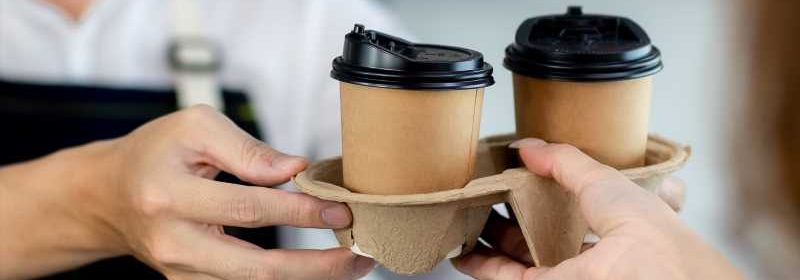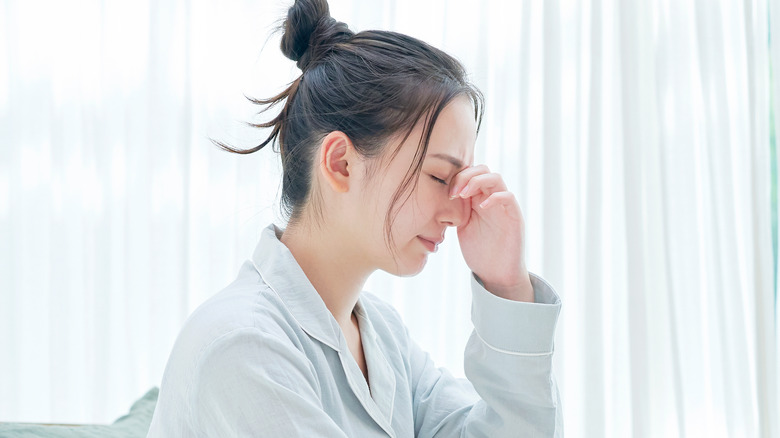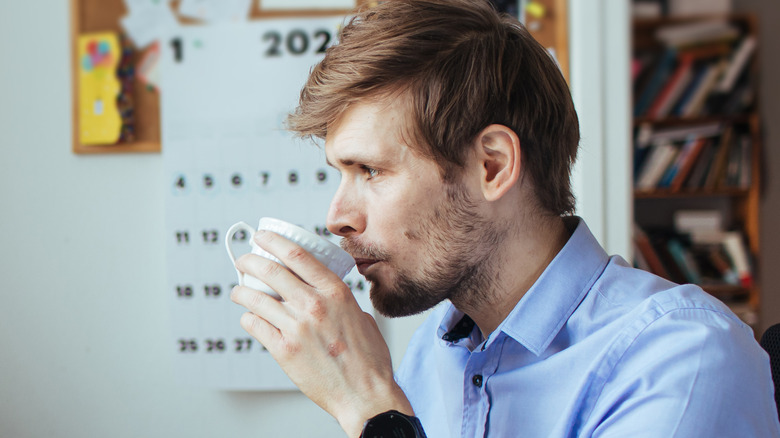How To Know If You’re Addicted To Caffeine


By Raegan Davies/Aug. 25, 2021 4:40 pm EDT
It’s on mugs, tee shirts, even your aunt’s Facebook status — “don’t talk to me before I’ve had my coffee.” Most of us have felt like this at some point, whether we use our morning cup of coffee as a time to relax before starting our morning or as a way to fuel and charge up for a day on the go. According to Healthline, about 75-80% of people worldwide regularly drink caffeinated beverages, with coffee being the main source ahead of teas and sodas. So you’re not alone.
However, the regular consumption of caffeinated beverages — regardless of what they are — can lead to caffeine dependency. While reliance on caffeine is not nearly as dangerous as reliance on other drugs, it still has an effect on the body. In fact, not consuming caffeine after it’s been a regular part of your diet can even lead to withdrawals.
Keep reading to find out whether or not you may have a caffeine addiction.
Mornings are miserable without caffeine
According to Self, there are a few ways to test your level of caffeine dependence as soon as you wake up in the morning. One of the first questions you can ask yourself is if your head is pounding until you’ve had your first cup of coffee. Caffeine is what’s known as a vasoconstrictor, meaning it narrows blood vessels and restricts blood flow, which is very effective for relieving headaches. This means that if you consistently have caffeine in your system, skipping or even delaying your morning cup of coffee can lead to a headache.
Plain grumpiness without your morning coffee can be a sign of dependency, too. Caffeine is a stimulant, meaning it stimulates the pleasure centers in the brain. While it may not feel like it, it’s very easy to get addicted to caffeine because of this. If you are consistently in a bad mood before you have a cup of coffee, and especially when you skip one, you may have a caffeine addiction.
Less is…a lot less
One of the most telling signs of caffeine addiction is a change in tolerance. Tolerance is the threshold our bodies have of how much of something we need for the substance to take effect (via Self). People are born with naturally higher or lower caffeine tolerance based on genetics, but if you find that your tolerance has shifted since you started drinking caffeine it may be a sign that you have an addiction to it.
If your tolerance for caffeine has gone up, that means it takes a lot more of it to give you the same burst of energy that one cup will give to a person with a lower tolerance. If you still feel grumpy or lethargic after your first cup, or if you can drink a cup of regular coffee later in the day and still have an interrupted and easy sleep, you may have a caffeine addiction.
Source: Read Full Article

